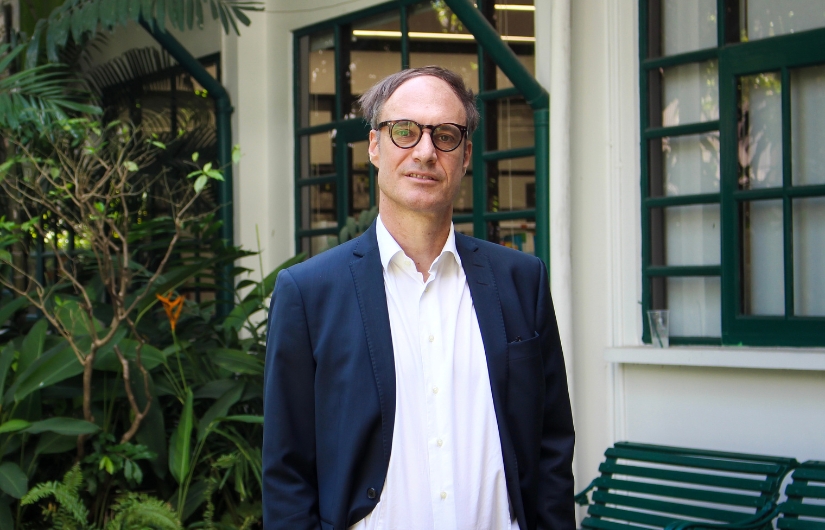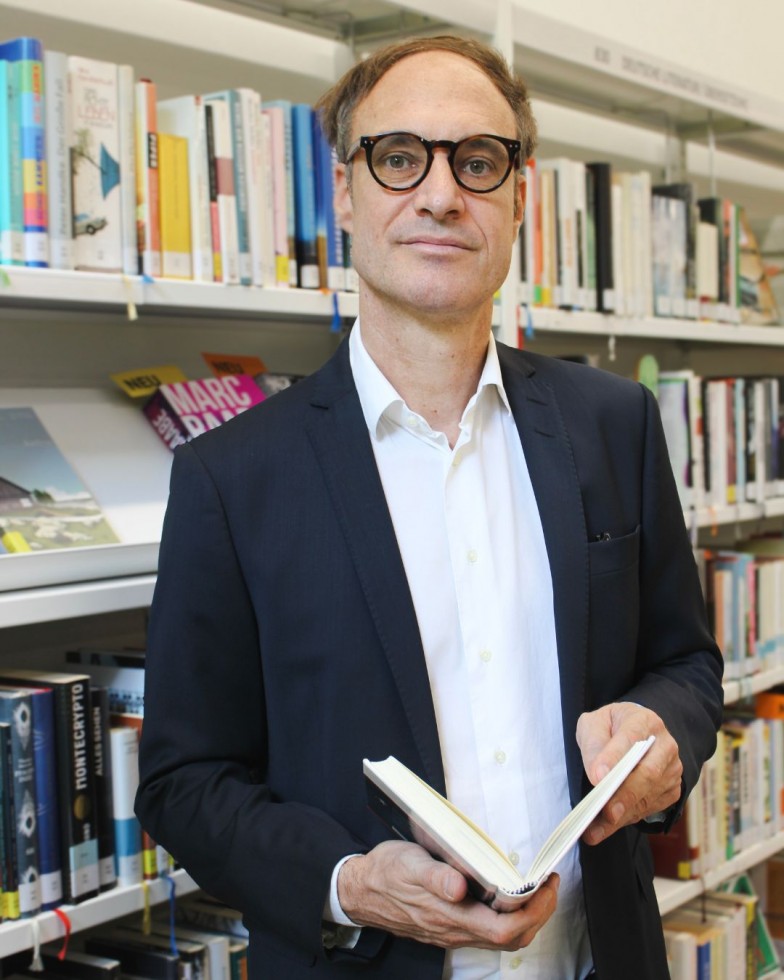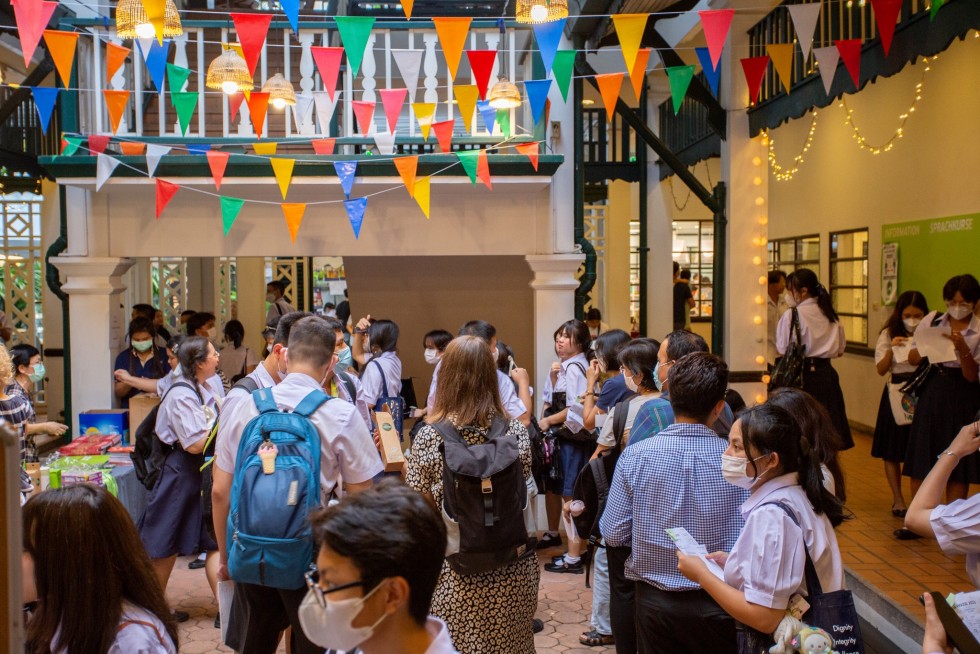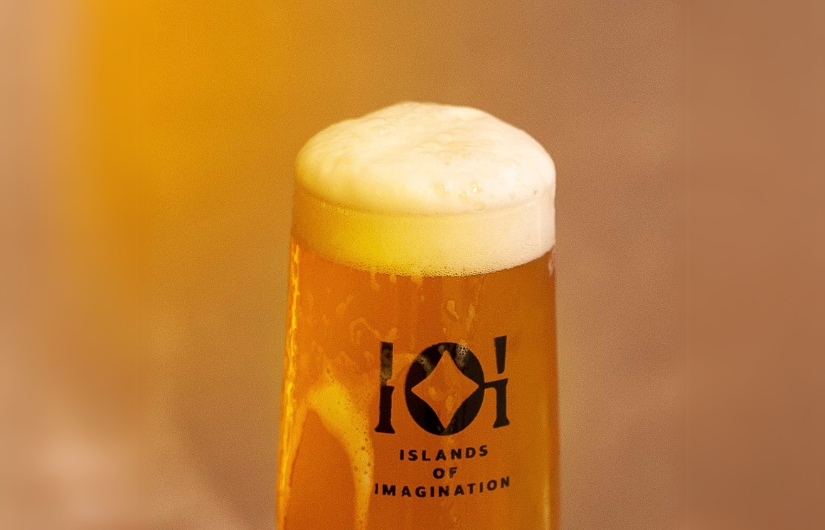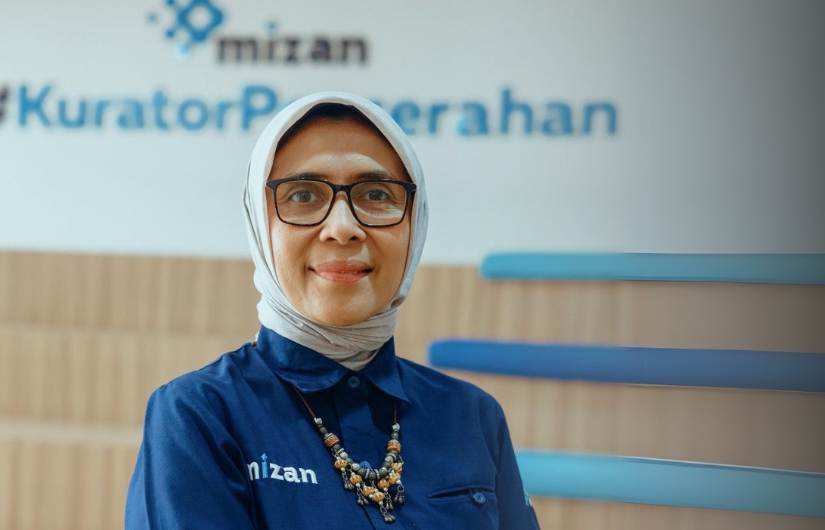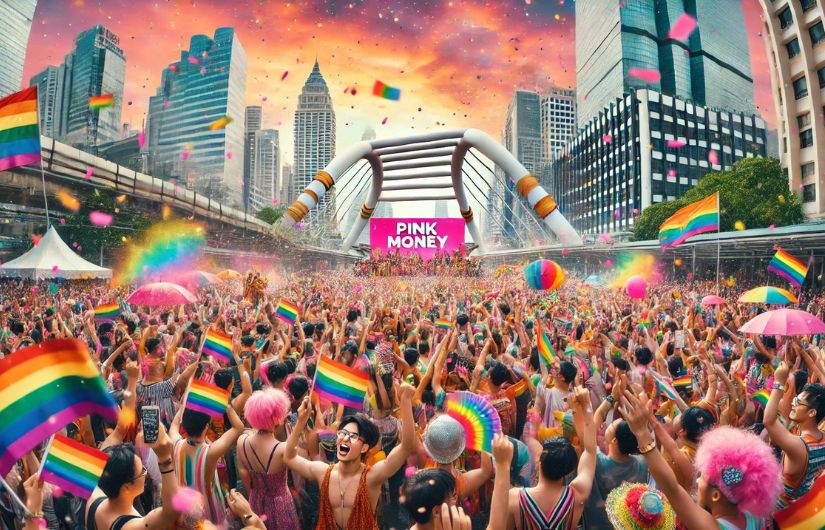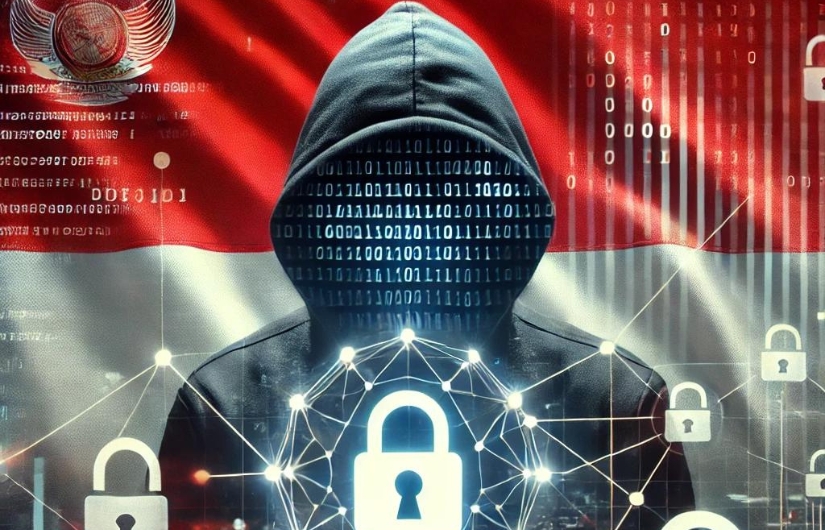Johannes Hossfeld is the current director of Goethe-Institute Thailand. First, he worked in the film industry and studied philosophy, art history, literature, musicology and film in Italy and Germany. He then joined the Goethe-Institute organization 18 years ago and was first assigned to South Africa. He then was posted to Kenya twice where he spent a total of 10 years before coming to Thailand. Elite+ was quite fortunate when Johannes accepted our request to talk about Goethe-Institute Thailand and its current activities and future plans.
What does education mean to you at the Goethe-Institut?
We believe in the importance of education in all areas of life. One of our most important contributions is that we offer German language courses. Around 5,000 people learn German with us at the Goethe-Institut every year. Online courses are part of the program, so we can also reach people outside Bangkok. Many want to study German to find a job in Germany, or just because they are interested in the language and culture. We work closely with schools and universities where German is taught as well as with the Ministry of Education to train German teachers And we offer German exams throughout Thailand with about 8,000 people taking these exams every year.
But education means much more than this, of course. Almost all our projects and programs have an educational aspect, and we are committed to learning in partnership. For example, we just organised a science film festival with many partners. Its aim was to promote science literacy and awareness of scientific, technological and environmental issues among young people. This year, the festival, which was held in countries worldwide, was an official supporting partner of the United Nations Decade on Ecosystem Restoration. Reaching about one-half million young people, this festival has been one of the largest science film festivals in the world.
Can you share your vision for promoting language learning at Goethe Institute Bangkok, especially in the context of fostering cross-cultural communication between Germany and Thailand?
We are the central contact point in Thailand for German as a foreign language. We cooperate with the Ministry of Education and our extensive network of 50 schools throughout Thailand where German is taught. We would like to strengthen this cooperation. It is important to us that we continue to create further training opportunities for teaching, not only in Bangkok, but nationwide.
Our scholarship program is particularly important for cross-cultural communication between Germany and Thailand to encourage people to participate in intercultural and professional exchange programs. We would also like to expand our online courses, as more and more people outside Bangkok want to learn German.
As the central point of contact for information about living, working and studying in Germany, we provide answers to questions for those interested in studying or working in Germany, such as: What exactly is expected of me in the workplace? How should I organize my everyday life? Who will support me if I have problems?
We know how much good German language skills and intercultural preparation make it easier to arrive in Germany and enter the world of work and study, and we help to prepare people for their move.
What do artistic activities look like at the Goethe-Institut Thailand?
Relations between the Thai and German art worlds are strong, and we are working to ensure they continue to develop across the entire spectrum of cultural exchange. Through our projects, we connect artists as well as promote co-productions and collaborations between Thailand and Germany. For example, at the Thailand Biennale taking place in Chiang Rai right now, an important work by the German artist Tobias Rehberger is being shown. Just yesterday, a dance workshop took place in our hall in which the dancer and choreographer, Juan Kruz Diaz de Garaio Esnaola, who is based in Germany, worked with Thai dancers and ‘mor lam’ (traditional north-eastern Thai music) musicians. The resulting choreography will be premiered in 2024 at the Unfolding Kafka Festival.
In a few weeks, a workshop on documentary and post-dramatic theatre will take place with our partner, Thammasat University. This will be conducted by the German dramaturge Kai Tuchmann together with Prof Parichat Jungwiwattanaporn, the dean of the Fine and Applied Arts Faculty at Thammasat University. At the same time, we are bringing Thai artists to participate in festivals and biennials in Germany.
Furthermore, we have an ongoing programme of events here in our hall at Soi Goethe, Sathorn. Every week we offer all types of events, like the dance workshop we held yesterday in our hall. Each year we host large-scale events, like our German Christmas Market held last weekend on our premises. It's not just meant to be a big celebration, but the event gives people information about Germany. We also had Thai musicians perform and had over 40,000 visitors in attendance.
As an advocate of cultural diversity, how will you ensure that the Goethe-Institut Bangkok remains accessible to a diverse audience?
We want to be a place for all people in Thailand who are interested in culture and education. Our projects are correspondingly broad-based: Sometimes we work with young people, for example, as part of our science film festival, or in collaboration with the universities in Thailand whose faculties often hold workshops in our library. Sometimes, we work specifically with particular art scenes in Thailand for different sized general audiences. In doing so, we promote diversity and inclusion, which we also represent in the institute's team. The dance workshop I mentioned earlier focuses on ritual dances of the ‘lam pifa’ healing ceremony to address issues of gender, disability, age and illness. Last year, we supported the theatre production, ‘I Don't Care’, by the B-Floor Theater and Residenztheater in Munich, which is based on Interviews with eight trans people in Thailand and Germany. The Thai-German coproduction discussed the obstacles and their self-determination of trans people to claim the rights and freedom over one own’s body and mind. Diversity and inclusion are important aspects of our work that we must continue to pursue.
How has your experience in Kenya influenced your approach to your current role as the director of Goethe Institut Thailand regarding cultural programmes?
The most important experience I have taken with me is about constantly learning anew, asking questions like how are the local cultural, educational and art scenes constituted; what framework conditions do they work in; what connections exist with Germany; and how can we be relevant locally. In this respect, I have to learn by joining the ongoing discourses.
How do you plan to encourage literary exchange between German and Thai writers, and what initiatives might we expect in the coming years?
Literature plays an important role in our programs. The centrepiece is our library. Of course, we offer German-language literature in German, English and Thai. Our aim is to mediate between the literary scene in Thailand and Germany. We support translations of German-language literature into Thai. This year, for example, the translation by Piyakal Sinprasert of the novel, Someday We'll Tell Each Other Everything, by Daniela Krien was published in Thailand by Library House. Our library is also a workshop and event venue for the Thai literary scene, and Thai literature festivals and workshops take place in our library.
With the rise of digital platforms, how do you plan to incorporate technology and online resources to enhance the reach and impact of Goethe Institut's cultural programs in Thailand?
Although we value direct exchange in real spaces, it is important to reach more people online. That's why online German courses are becoming increasingly important for us. We also work with our own Goethe learning platform, where people who learn German with us can come into contact with each other online. Our science film festival for young people reached some of its 500,000 viewers via online streaming. With our Southeast Asian Digital STEM Platform, we provide teachers in the region with online teaching materials for their lessons in STEM subjects. We actually reach more people with digital platforms than in physical workshops.
Any final thoughts you would like to leave with our readers?
Goethe Institut believes that culture broadens horizons. It allows us to see the world through different eyes and enables us to talk about similarities and differences. We believe that international cultural exchange has never been as important as it is today. To contribute to this, our work is based on strong partnerships. This ranges from arts and civil society organizations in Thailand to the ministries in Thailand and large organisations, including the German Embassy, EU and UN missions, as well as sponsors such as Rolls Royce and Singha.


